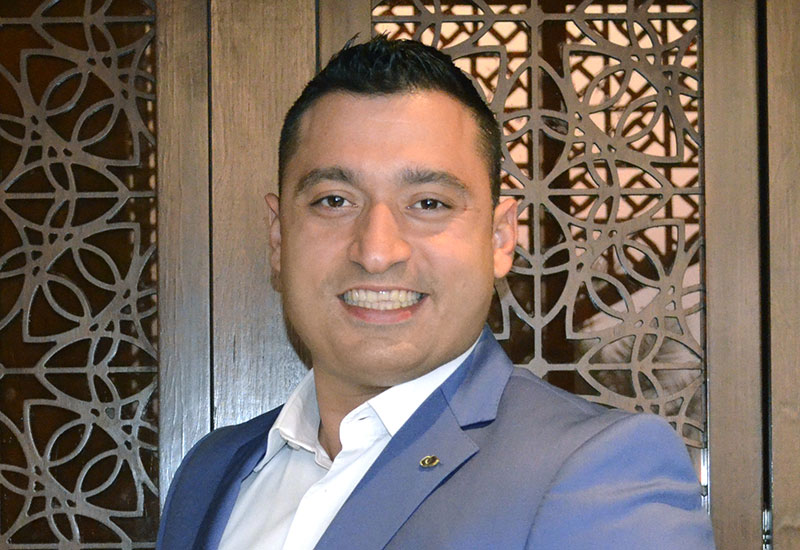What is your career background, and how did you did you get into hospitality marketing?
I graduated from Middlesex University with a BA in international tourism and business management, I joined Kempinski Hotels as global sales coordinator back in April 2008, but soon got promoted as the sales manager at their Palm Jumeirah property. In March 2012, I joined the FRHI Hotels as director, global accounts, and maintained a strong standing within the group for five years before moving to Sofitel Bahrain Zallaq Thalassa Sea and Spa as director of sales and marketing in July 2017. I have recently been managing two landmark properties, the Mercure Grand Seef as well as Sofitel Bahrain Zallaq Thalassa Sea and Spa, as cluster director of sales and marketing, and aim to lead the hotels to great success.
What are your responsibilities at the hotel?
I overlook the topline revenue, sales and marketing goals of our two prime hotels and to ensure the two brands are successfully represented in local and overseas markets, ensuring the best interest of AccorHotels, all shareholders and Heartists.

| Advertisement |
What are some of the current trends in hospitality marketing in Bahrain?
Like all industries, hospitality marketing is fast adapting to the digital realm. Guests are increasingly using digital mediums to book; going with online travel agents or simply through direct bookings online via search engine ads. CRM remains a key driver in the marketing mix and e-marketing, with its customisable features along with database management, has proved extremely successful. Social media has evolved overall vastly with better algorithms, specifically for Facebook and Instagram, and greater freedom to track, target, retarget and customise ad campaigns. Search engine marketing within the hospitality industry in Bahrain has yet to fully mature, with advertisers still struggling to see its full potential. With increased usage of image-friendly social media platforms, such as Instagram and Snapchat, our online marketing ad spend accordingly reflects higher expenditure on these platforms with fantastic outcomes and better ROI. Guests are also more receptive to social media influencers, hence we hasve collaborated with leading social media personalities and bloggers.
What are some of the strategies you developed for Sofitel Bahrain?
I have successfully been able to reposition Sofitel Bahrain as the premium luxury resort in Bahrain for families locally as well as from Saudi Arabia. We have also penetrated the CIS and European markets, and established the first direct chartered flights between Moscow and Bahrain in collaboration with local tourism authorities, starting from October 2018. I also ignited the Indian wedding craze, rebranding the property as the ultimate island wedding destination, resulting in various large-scale weddings at the property.
What are some of the challenges you face?
Bahrain is a small and extremely unpredictable market and never prepares you for what you may face next. It is a challenge we face when budgeting and is a forecasting nightmare at times.
What is your ultimate goal?
My ultimate goal is to position Sofitel Bahrain Zallaq Thalassa Sea and Spa as the chief holiday destination in the Middle East attracting tourists from all around the globe. Besides this, also drive additional footfall to the Middle East’s only Thalassa Sea and Spa and promote the healing properties of seawater.
How important is it for a hotel to offer deals or incentives to stay competitive?
In such a competitive industry, deals are crucial to stay ahead in the game. During peak seasons, to avoid revenue dilution, deals do not work well.During off-peak seasons, deals and incentives almost guarantee success, based on market research, pricing strategy, marketing channels and offerings.
What are your major achievements at your hotel?
Being able to reposition the property successfully in the GCC as well as the CIS and Indian markets with positive results.









 Search our database of more than 2,700 industry companies
Search our database of more than 2,700 industry companies









